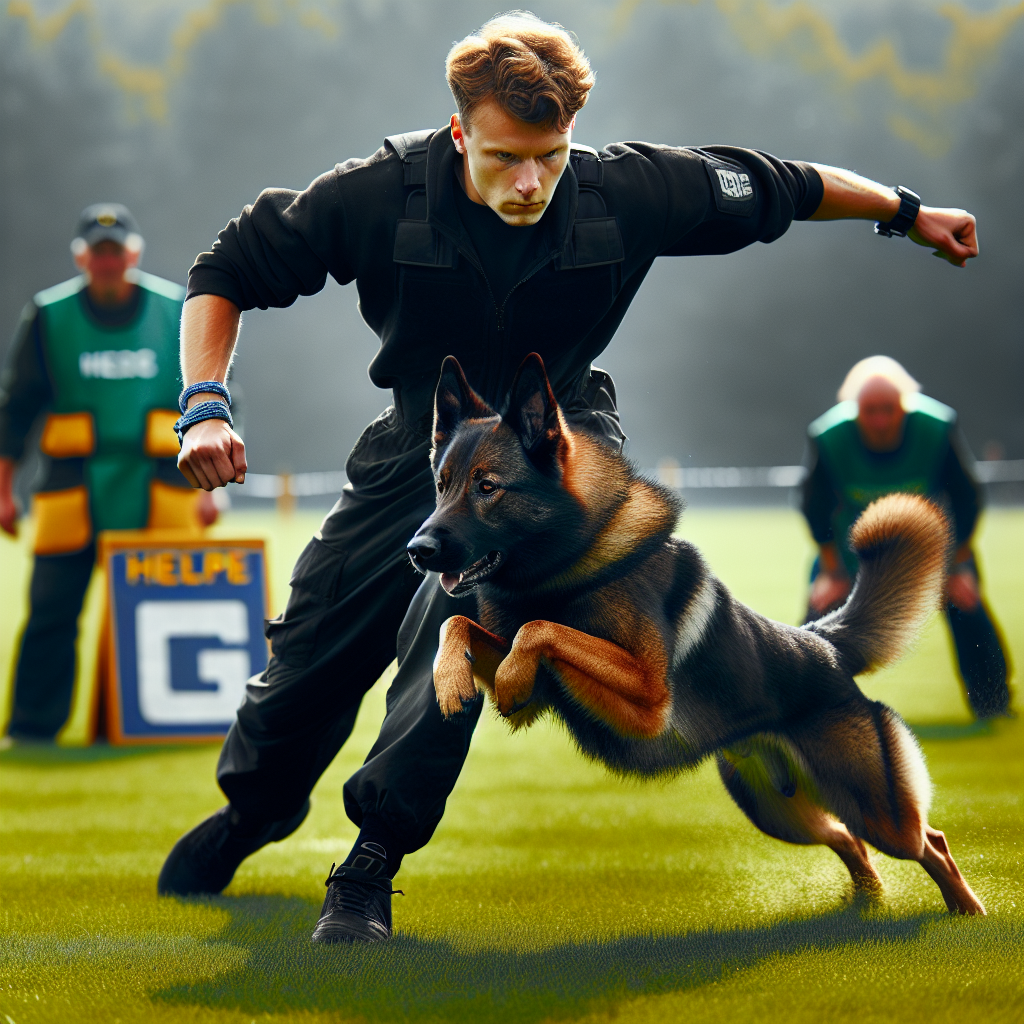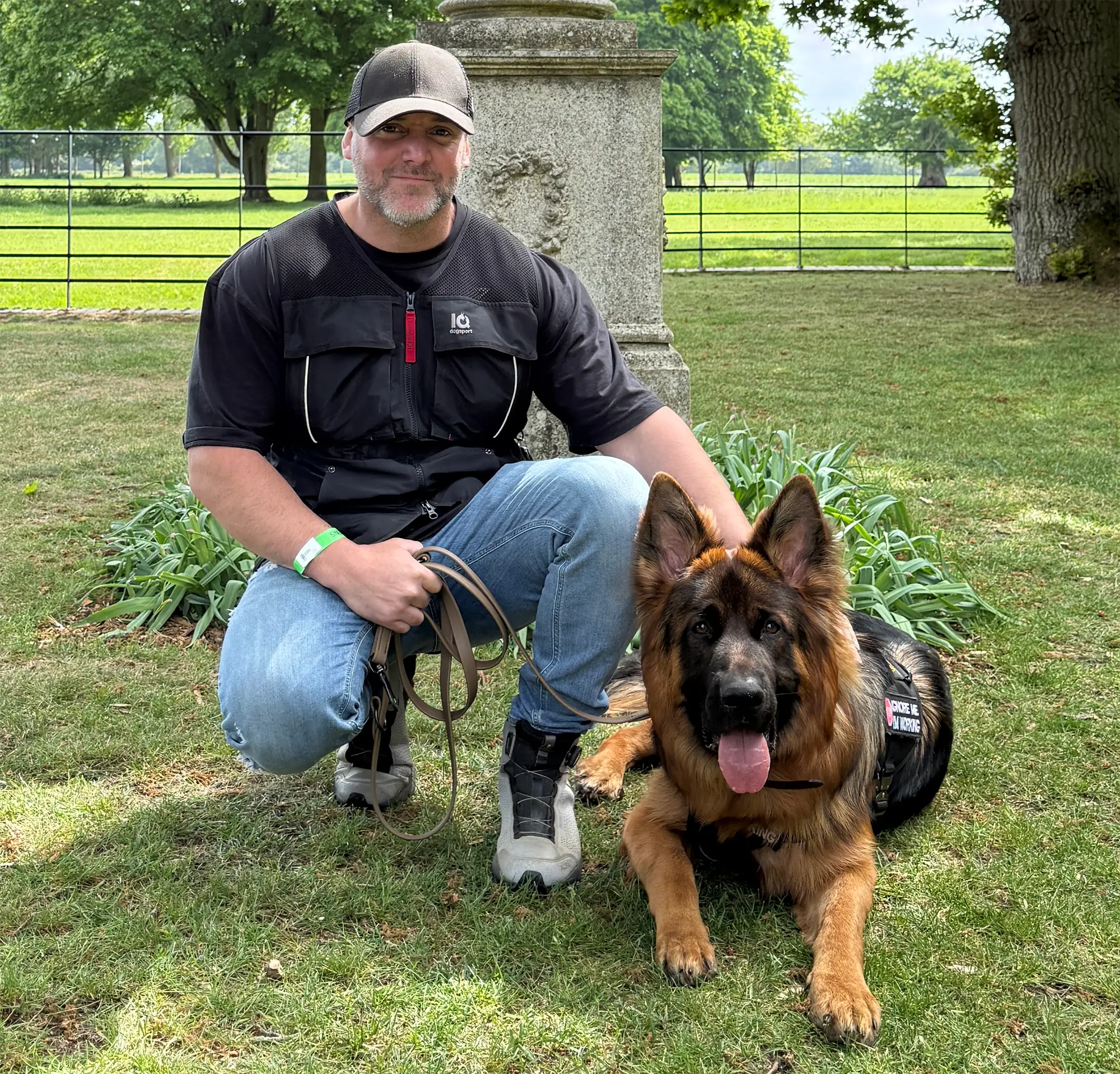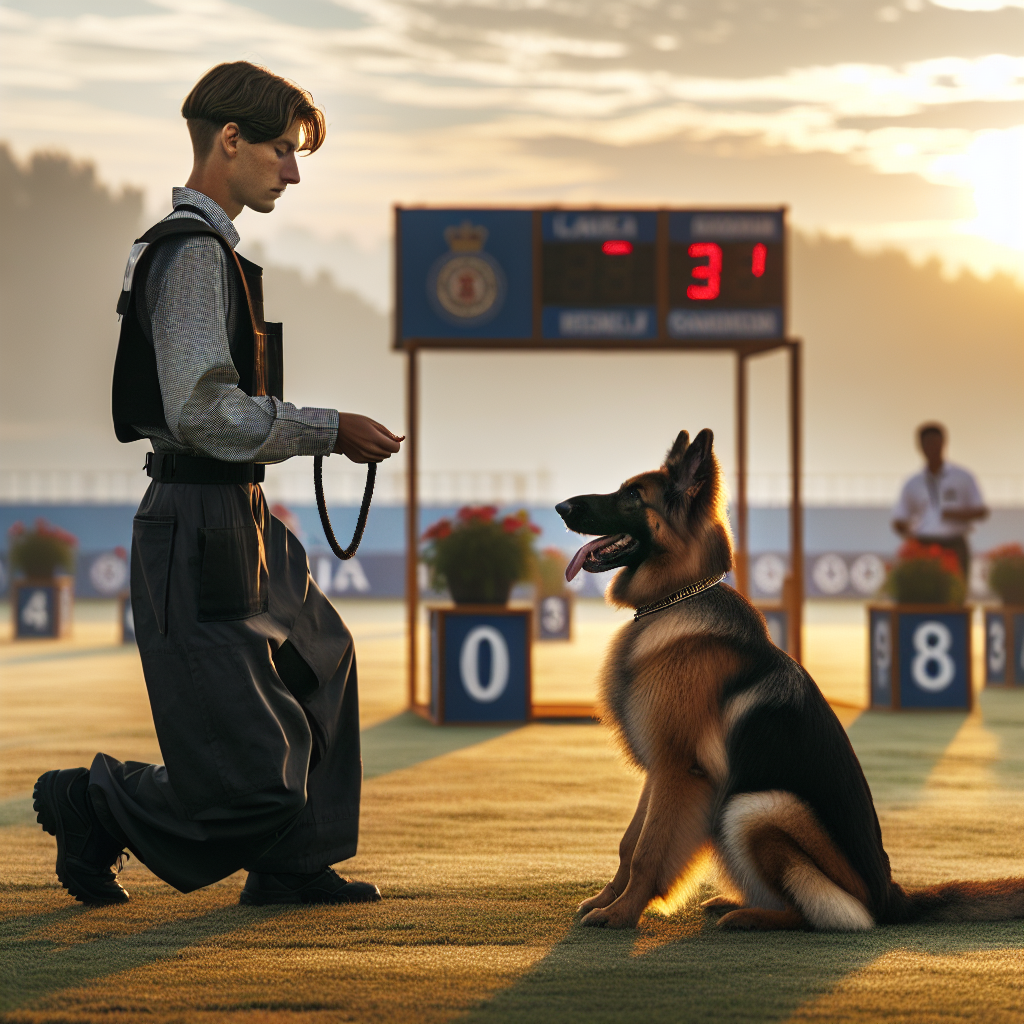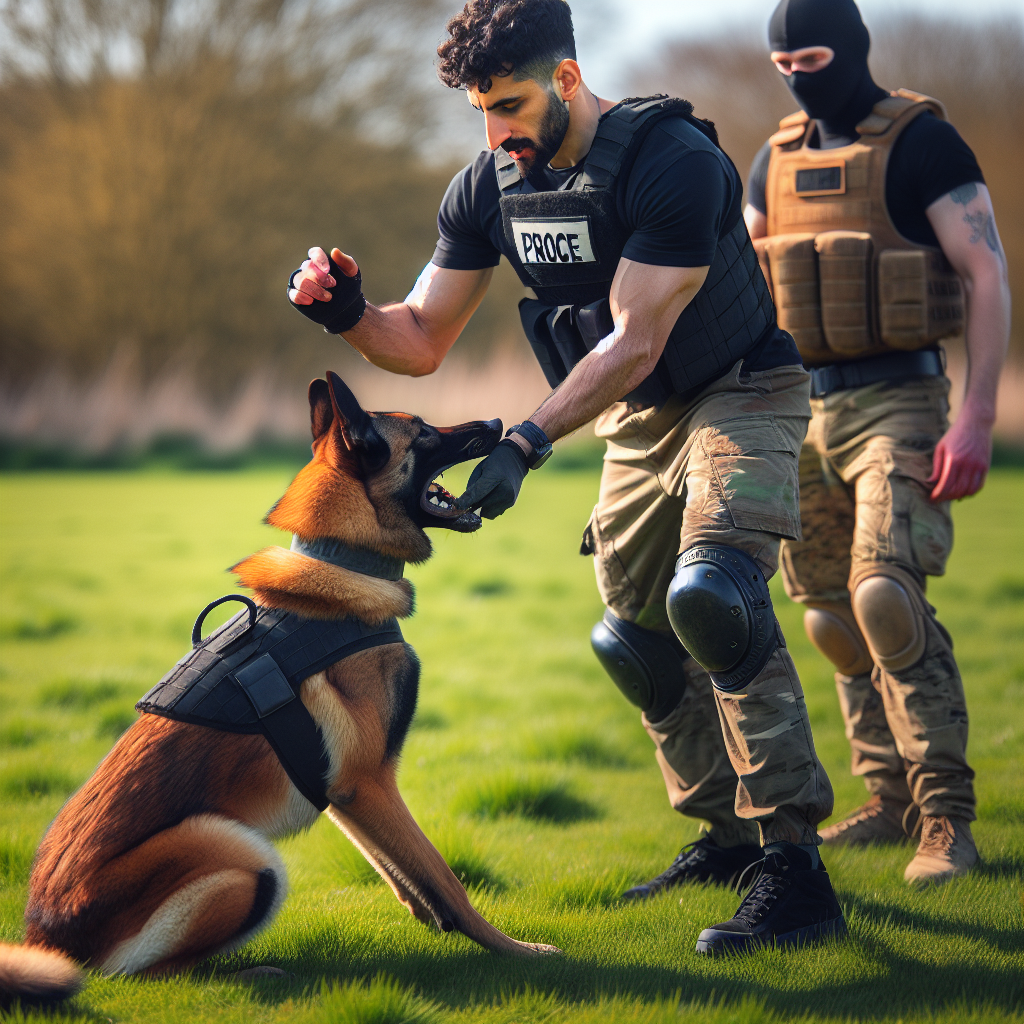Is My Dog Suitable for IGP

Is My Dog Suitable for IGP
If you are asking is my dog suitable for IGP, you are already thinking like a responsible handler. IGP is a demanding sport that blends tracking, obedience, and protection into a single test of nerve, drive, and control. At Smart Dog Training, we use the Smart Method to assess and prepare dogs for this path with clarity, motivation, progression, and trust at the core. Your first step is a fair and expert assessment by a Smart Master Dog Trainer, who will guide you through the facts and show you what is possible.
IGP rewards mental balance as much as physical talent. Many dogs enjoy parts of the sport, but only some will thrive in the full picture. This guide walks you through how Smart evaluates suitability and how we build a plan for those who are ready. We will answer the question is my dog suitable for IGP and show you how to make a clear decision that puts welfare and results first.
Understanding What IGP Demands
IGP tests a dog in three phases. Tracking measures scent work and focus under pressure. Obedience measures precision, drive, and neutrality on a busy field. Protection measures courage, control, and grip quality with a helper. Each phase requires stable nerves, high motivation, and trust in the handler. The sport is not about aggression. It is about control and balanced drive shaped through the Smart Method.
When owners ask is my dog suitable for IGP, we explain that suitability lives at the crossroads of temperament, health, and training. No single trait answers the question. We must see the whole dog and the relationship with the handler.
Key Traits That Predict IGP Success
Smart trainers look for a specific profile. The dog should be keen to work, open to learning, neutral in public, and physically sound. Here are the core traits we assess.
Temperament and Nerve Strength
- Calm recovery after stress or surprise
- Curiosity over avoidance when faced with a novel object or sound
- Ability to switch from high arousal to calm on cue
- Comfort near the helper and equipment with no fear response
Stable nerves allow a dog to try, fail, and try again without meltdown. This is vital when you ask is my dog suitable for IGP.
Drives and Engagement
- Strong toy or food motivation that holds in busy places
- Willingness to chase and grip a tug with full, calm mouth
- Handler focus that comes back fast after distraction
- Play that remains social and cooperative with the handler
Drive gives us the fuel. The Smart Method uses motivation to build desire for work while installing rules through clarity and pressure and release. This is how we keep power under control.
Environmental Confidence
- Comfort on different surfaces, heights, and footing
- Neutrality around crowds, dogs, and loudspeakers
- Focus that holds when helpers move and shout
A dog can have big drive yet struggle on a new field. We train environmental confidence early so that trial day feels like practice.
Social Neutrality
- Friendly or neutral approach to strangers
- No conflict with other dogs on or off lead
- Clear on and off switch when asked to work
Neutral does not mean dull. It means the dog can work and relax without social drama. This is a core part of our public facing programmes at Smart Dog Training.
Health and Structure Requirements
Soundness matters for performance and welfare. Before we say yes to the question is my dog suitable for IGP, we look at the whole body.
Age and Growth
- Puppies can build foundations, focus, and play
- Jumping, heavy pressure, and long tracks wait until growth plates close
- Mature dogs can start if temperament and health are right
We protect young joints while building the mind. The Smart Method keeps sessions short, upbeat, and structured.
Orthopedic Soundness
- Free, balanced movement at all gaits
- No history of chronic lameness or pain
- Good hip and elbow health where known
Grip work, jumps, and heeling all load the body. Pain reduces drive and can create conflict. We always put welfare first.
Endurance and Recovery
- Resting heart rate and breathing that return to baseline fast
- Ability to work in weather changes and stay focused
- Good appetite and hydration after sessions
We build aerobic base and strength step by step. Progression is planned and measured.
Breed and Pedigree Considerations
IGP is open to all breeds. Many dogs can enjoy training, and some can title. Working line German Shepherds, Malinois, and similar types are common in the sport because they often carry the trait mix we need. That said, our answer to is my dog suitable for IGP is never based on breed alone. We judge the individual dog in front of us, then map a plan.
Pedigree can add clues about nerve, grips, and resilience. It does not replace a hands on assessment by a Smart Master Dog Trainer. We see many pet line dogs who love obedience and tracking and are happy in club life even if they never enter a trial. The goal is to match the dog to the right level and keep training fun and safe.
Foundations Before Sport
Great IGP teams are built on early foundations. We install the building blocks that let the dog shine under pressure.
- Marker training for clarity in timing
- Toy and food play that teaches clean grips and fast outs
- Focus games that hold attention around distraction
- Recall, place, and heel positions taught with precision
- Calm crating and transport routines for real trial days
Smart Method Foundations for IGP
The Smart Method brings five pillars to every session. Clarity in commands and markers. Pressure and release that is fair and clear, always matched with a release and reward. Motivation that keeps the dog keen and engaged. Progression that moves from simple to complex with a step by step plan. Trust that grows as dog and handler learn to communicate without conflict. When owners ask is my dog suitable for IGP, these pillars guide our answer, since they show exactly how we will prepare your dog for success.
Owner Readiness and Lifestyle Fit
Suitability is not only about the dog. It is also about the handler. IGP needs time, consistency, and a plan.
- Three to five short training blocks per week
- Access to a field and tracking spots
- Regular sessions with a Smart trainer and a helper
- Commitment to the welfare and mental balance of the dog
Our team will show you how to practice between lessons, how to log progress, and how to handle stress on trial day. If you want a straight answer to is my dog suitable for IGP, we will also check if the sport fits your weekly life.
How Smart Assesses IGP Suitability
Smart uses a structured, humane process to give you a clear yes, no, or not yet.
The Smart IGP Pre Assessment
- Interview about goals, history, and daily routine
- Hands on tests for play, food drive, and grip
- Neutrality checks near people and dogs
- Environmental tests on surfaces, noises, and startle recovery
- Movement assessment at different speeds
Results are scored against our Smart Method criteria. We then map a plan with milestones and a timeframe.
Trial Pathway and Progression
- Foundation phase with marker training, focus, and play
- Skill phase for heeling, recall, retrieve, and tracking turns
- Protection foundations with clean grips, outs, and transport
- Mock trials under pressure with feedback from your trainer
This is a live process. We adjust as the dog grows. Your Smart Master Dog Trainer will show you where you stand and when to enter your first trial.
Ready to turn your dog’s behaviour around? Book a Free Assessment and connect with a certified Smart Master Dog Trainer, available across the UK.
Common Red Flags and How We Address Them
Some dogs show signs that call for a slower plan or a different goal. If you are still asking is my dog suitable for IGP after reading this list, a Smart assessment will bring clarity.
- Fearful response to the helper or the sleeve
- Noise sensitivity that does not recover in seconds
- Lack of interest in toy or food even in calm places
- Conflict around other dogs that does not resolve with training
- Pain related changes in stride or posture
At Smart Dog Training, we do not push dogs into work that does not suit them. We can redirect into obedience, scent focus, or other structured goals that keep training fun and purposeful.
Training Plan for a Young Prospect
If your puppy is lively and engaged, you might be thinking is my dog suitable for IGP and how soon can we start. We start early, but we start smart.
- Weeks 8 to 16. Social exposure, focus games, play, and simple marker work
- Weeks 16 to 28. Leash skills, recall games, tug rules, and short tracks
- Months 7 to 12. Precision heeling setup, longer settles, and grip play with perfect outs
- Months 12 plus. Add duration, distraction, and field pressure with short, successful reps
Every session ends on a win. We track progress and keep the dog keen. The Smart Method protects the mind while building the athlete.
Can a Rescue Dog or Older Dog Do IGP
Yes, if the temperament and health align. Many rescue and older dogs love the structure and engagement of IGP style training. The question is not only is my dog suitable for IGP, but also what level of the sport is humane and enjoyable for this dog. Our assessment will answer both.
For older dogs, we adjust impact, reward schedules, and recovery. For rescues, we take time to build trust and neutrality. Some will thrive in obedience and tracking and enjoy helper exposure without trialing. We always match the plan to the dog.
Equipment and Handling Skills
Smart teaches you how to use equipment with fairness and skill. The tool is only as good as the handler. We focus on timing, clear markers, and clean mechanics.
- Flat collar and long line for tracking
- Tug toys that fit the dog’s mouth for safe grips
- Rewards placed with intent to shape precise movement
- Crate routines that create calm and focus before work
If you ask is my dog suitable for IGP, you should also ask is my handling suitable for IGP. We will teach you both.
Safety, Welfare, and Accountability
Welfare is non negotiable. The Smart Method balances motivation with fair pressure and release. We teach dogs how to earn reinforcement through effort and control. We never create conflict. We build trust.
Our trainers are held to the highest standards in the UK. Every Smart Master Dog Trainer is trained to spot stress, pain, or confusion and to adjust the plan fast. Your dog’s long term health and joy in work always come first.
Costs and Time Commitment
IGP is a sport, and like any sport, it needs time and budget. A clear plan helps you set realistic goals.
- Weekly coaching with a Smart trainer
- Helper sessions for protection foundations
- Travel and field access
- Trial entry fees when you are ready
We will map a timeline after your assessment. If the answer to is my dog suitable for IGP is yes, you will have a firm training pathway and milestones to aim for.
How Smart Decides Yes, No, or Not Yet
After the assessment, we give you a clear recommendation.
- Yes. Your dog is suitable for IGP with a defined plan and start date
- No. Your dog would not enjoy or cope with the sport, and we offer a focused alternative within Smart Dog Training programmes
- Not yet. Your dog needs a foundation period. We set goals and review in twelve weeks
This protects the dog and respects your time. It also removes doubt. You will not be left guessing is my dog suitable for IGP after we have done our process.
Real World Obedience That Transfers to Trial Day
IGP work must hold up in the real world. Heeling should look the same in your local park as it does under a judge. Recalls must be reliable with dogs and people nearby. Tracking must hold when the wind shifts and birds move. The Smart Method is built to transfer training from quiet spaces to busy trial fields. We proof behaviours through progression, not pressure for its own sake.
FAQs
How do I know is my dog suitable for IGP without wasting time
Book a Smart assessment. We run structured tests for drive, nerve, and engagement. You will get a clear yes, no, or not yet, plus a plan.
Does breed decide is my dog suitable for IGP
No. Breed can guide expectations, but Smart judges the individual dog. We have seen many breeds succeed at different levels.
Can my pet line dog do IGP
Yes if the temperament and health align. We focus on joy in work and control. Many pet line dogs enjoy training and may enter trials when ready.
What age should I start if I am asking is my dog suitable for IGP
Start foundations as early as you like. We protect joints and build focus, play, and neutrality before adding hard work.
What if my dog shows fear of the helper
We slow down and build confidence with play and distance. If fear persists, we may alter goals to protect welfare.
How often should we train each week
Plan three to five focused sessions. Keep them short and successful. Your Smart trainer will set homework that fits your schedule.
Will I need special equipment
Only basic gear at first. A flat collar, long line, and a good tug or food rewards. Your trainer will advise as you progress.
Can an older rescue answer yes to is my dog suitable for IGP
Often yes. We assess temperament and health. Many rescues love structured work and can succeed with a tailored plan.
Conclusion
The right question is not only is my dog suitable for IGP, but also how do we build a path that is fair, progressive, and enjoyable. With Smart Dog Training, you get a clear answer and a plan shaped by the Smart Method. We test, we train, and we support you from first session to trial day. If your dog is a good fit, we will show you how to unlock that potential. If a different goal suits better, we will lead you there with the same care and skill.
Your next step is simple. Book a Free Assessment to meet with a Smart Master Dog Trainer. We will answer is my dog suitable for IGP with evidence and give you a roadmap you can trust.
Your dog deserves training that truly works. With certified Smart Master Dog Trainers (SMDTs) nationwide, you'll get proven results backed by the UK's most trusted dog training network. Find a Trainer Near You



